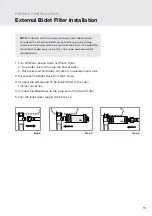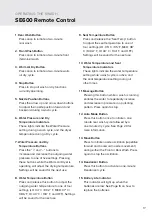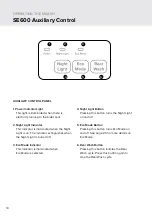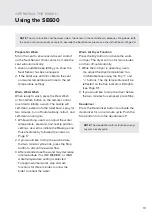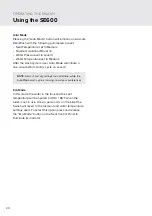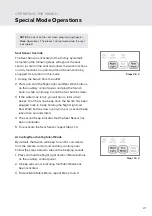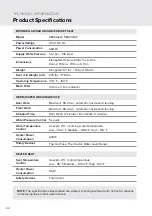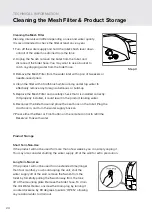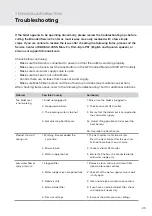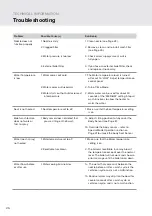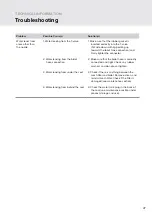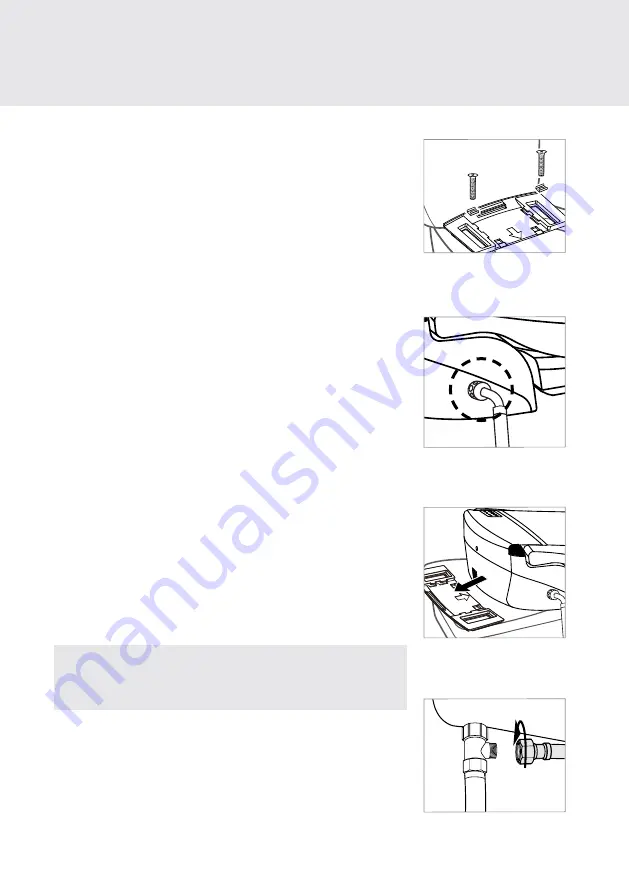
12
9. Connect the open end of the Bidet Hose to the T-Valve.
10. Turn On Water Supply
a. Open the main water supply valve slowly and check for leaks.
b. Wait 5 minutes, check again and if there are no leaks continue.
Step 8b
Step 7a
Step 9
6. Install Mounting Plate for top-mounted toilet seats (see page 11,
step 5 for instructions on Standard Installation). This method will
use a combination of the included Top-Mount Brackets and the
original toilet seat mounting bolts.
a. Place adjustable mounting plate over mounting holes on toilet,
rubber side facing down, arrow pointing to the toilet bowl.
b. Place provided Top Mount Brackets, flat side down, into the
slots of the mounting plate, over the bolt holes.
c. Insert the original toilet seat mounting bolts through the
Top-Mount Brackets and into the threaded bolt holes of the
toilet, using a screwdriver to tighten.
7. Connect the Bidet Hose to the Seat
a. Connect the elbow side of the bidet hose to the water inlet.
Hand-tighten to secure. Take care not to twist the bidet hose,
excessively bend it, or strip the plastic screw threads when
screwing the hose onto the bidet seat.
8. Attach the Swash to the Mounting Plate
a. Set the Swash flat on the toilet bowl in front of the mounting
plate, and slide seat onto plate until it is secure.
b. If the seat appears too short or too long for the toilet, adjust
the mounting plate accordingly. To adjust the mounting plate,
loosen the nuts underneath the toilet and slide seat forward
or backwards as needed. Once the seat is lined up properly,
tighten the nuts to hold in place.
Steps 6b & 6c
NOTE
: For those with mobility issues, we recommend our Swash 1400
or Swash 1000 bidet seats, as their mounting systems are engineered
for the most secure transitions from wheelchairs or walkers.
PRODUCT INSTALLATION
Swash Installation
c. Slide rubber cone washer, flat washer, and then nut onto
mounting bolts under the toilet bowl. Tighten to keep
mounting plate in place.

















